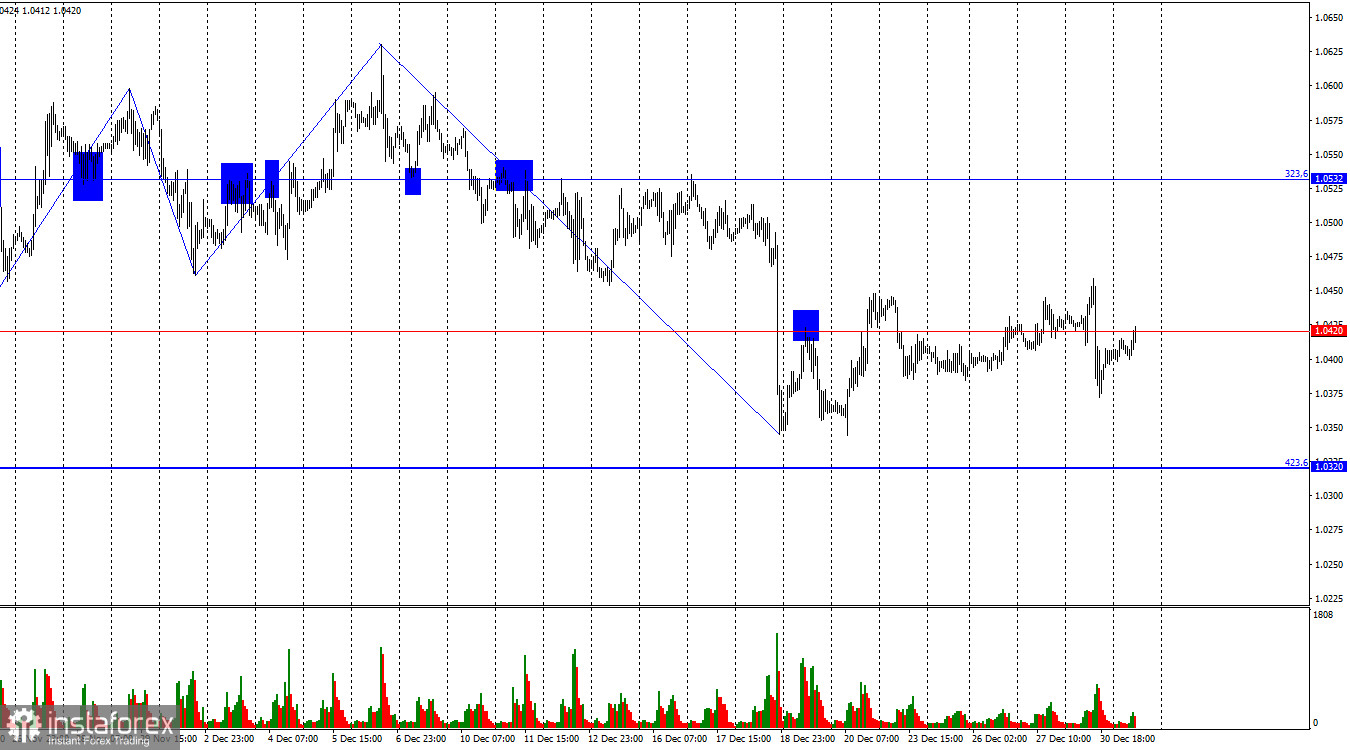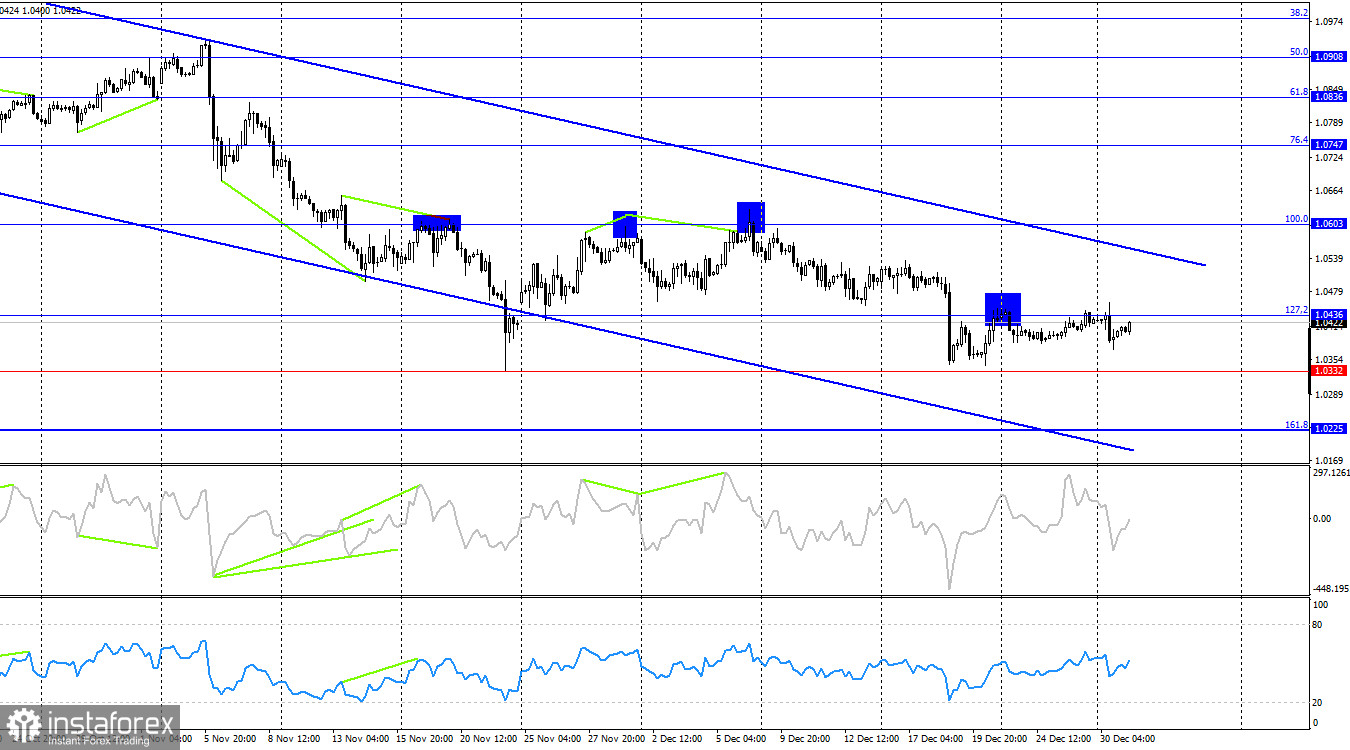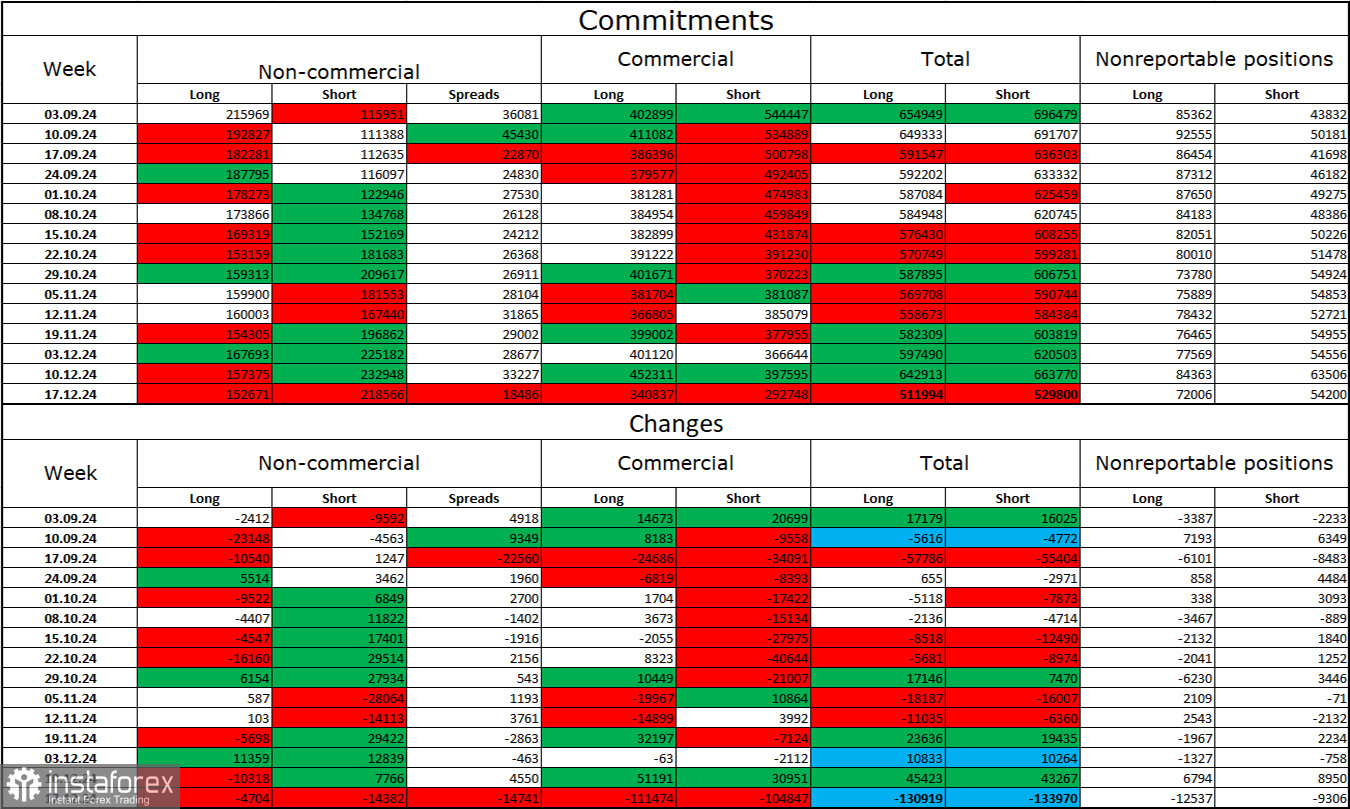On Monday, the EUR/USD pair returned to the 1.0420 level. Despite very low trader activity, the pair is not entirely stagnant. However, even if quotes close above the 1.0420 level, I would not expect growth toward 1.0532 in the coming days. Pre-New Year activity remains too low. A rebound from the 1.0420 level could favor the US dollar, leading to a decline toward the Fibonacci level of 423.6% at 1.0320.

The wave situation is straightforward and clear. The last completed upward wave slightly exceeded the previous high, while the last downward wave easily broke the previous low. Thus, the formation of the "bullish" trend can be considered complete. As I expected, it turned out to be very weak. Now, a new trend is forming, and further declines in the euro are likely after the current upward wave concludes.
There was no news background on Monday. Consequently, the almost complete inactivity of bears and bulls raises no questions. The market has smoothly transitioned from Christmas celebrations to New Year's mode, so movements are likely to remain weak or absent until the end of the year. Bulls or bears may occasionally attempt to move the pair in their favor, capitalizing on the passivity of the opposing side, but predicting such movements is nearly impossible. I believe traders may continue targeting the 1.0320 level, although some patience might be required. After the holidays, the market may remain in a subdued state for several more days.

On the 4-hour chart, the pair has rebounded twice from the 100.0% retracement level at 1.0603 and later from 1.0436. Currently, another rebound from the 1.0436 level is possible. Consequently, the downtrend may resume toward the Fibonacci level of 161.8% at 1.0225. A breakout above 1.0436 would suggest potential growth toward the upper boundary of the descending trend channel. No new divergences have been observed on any indicator. The trend channel provides no reasons to anticipate strong growth for the euro.
Commitments of Traders (COT) Report:

During the last reporting week, speculators closed 4,704 long positions and 14,382 short positions. The sentiment in the "Non-commercial" category remains bearish and is intensifying, indicating a further decline in the pair. The total number of long positions held by speculators is now 152,000, while short positions total 218,000.
For 14 consecutive weeks, major players have been reducing their holdings of the euro, signaling a bearish trend. Occasionally, bulls dominate in specific weeks, but these are exceptions rather than the rule. The key driver of the dollar's decline—the anticipation of a dovish FOMC monetary policy—has been priced in. There are no longer reasons for the market to offload dollars en masse. While such reasons may arise over time, a stronger dollar remains the more likely scenario. Graphical analysis also suggests a continuation of the long-term bearish trend. Therefore, I expect a prolonged decline in the EUR/USD pair.
Economic Calendar for the US and Eurozone:
The economic calendar for December 31 contains only one minor entry. The news background is unlikely to influence market sentiment today.
EUR/USD Forecast and Trading Recommendations:
Sales of the pair could have been initiated after a rebound on the 4-hour chart from the 1.0603 level, targeting 1.0420 and 1.0320. The first target has been reached, and the second is nearly achieved. New sales are possible following rebounds on the 4-hour chart from the 1.0436 level. I do not recommend considering purchases at this time.
Fibonacci Levels:
Fibonacci grids are constructed between 1.1003–1.1214 on the hourly chart and 1.0603–1.1214 on the 4-hour chart.
 English
English 
 Русский
Русский Bahasa Indonesia
Bahasa Indonesia Bahasa Malay
Bahasa Malay ไทย
ไทย Español
Español Deutsch
Deutsch Български
Български Français
Français Tiếng Việt
Tiếng Việt 中文
中文 বাংলা
বাংলা हिन्दी
हिन्दी Čeština
Čeština Українська
Українська Română
Română

